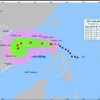Solving difficulties in preventing and combating human trafficking

After 12 years of implementation, the practice has required amendments and supplements to the Law to address limitations, difficulties, obstacles, and inadequacies in the implementation process, meeting the requirements of current human trafficking prevention and combat work.
At the 7th Session of the 15th National Assembly in June 2024, discussing the draft Law on Prevention and Combating Human Trafficking, the majority of delegates said that the draft Law demonstrated superiority over the 2011 Law in protecting human rights and implementing in good faith international commitments to which Vietnam is a member.
Delegates focused on clarifying several major issues: The concept of "human trafficking"; the concept of victims, people in the process of being identified as victims; the act of buying and selling fetuses; the State’s policy on preventing human trafficking; the support and protection regime for people in the process of being identified as victims. This amendment and supplement aim to ensure and protect human rights and the rights of victims following the current economic and social conditions of Vietnam and the future.
Specifically, regarding the concept of human trafficking, the draft Law has expanded some contents compared to the current law, including the content that people from 16 to under 18 years old only need to have the elements of behaviour and purpose to be considered human trafficking, because people under 18 years old have not fully developed their awareness, so they will be protected by law at a higher level.
This provision is also consistent with the United Nations Convention on the Rights of the Child. Along with the expansion of the concept of human trafficking, other handling measures will also be considered for application in addition to criminal handling measures, contributing to improving the effectiveness of the fight against human trafficking. Also, in the draft, the case of human trafficking under 18 years old, even with the consent of the victim, is still considered human trafficking.
The draft Law has supplemented important principles and policies of the State on the prevention of human trafficking, such as Policies to support people in the process of being identified as victims and regulations on exemption from criminal and administrative liability in cases where victims are forced to commit illegal acts.
According to the assessment of National Assembly deputies, the addition of these principles is very necessary, further affirming the humane policy of the Party and State in the work of preventing human trafficking. The majority of delegates suggested that the drafting committee should consider adding this area to the priority areas for annual state budget allocation for human trafficking prevention and control.
At the August 2024 legal session, the National Assembly Standing Committee gave its opinion on the draft Law on Prevention and Control of Human Trafficking (amended). Vice Chairman of the National Assembly Nguyen Khac Dinh chaired the session and said: The latest draft Law has eight chapters and 67 articles, an increase of one article compared to the draft submitted by the Government at the 7th Session, of which 65/67 articles have been supplemented and amended. The drafting of this law contributes to overcoming the shortcomings of the current Law and adapting to relevant international regulations.
Notably, one issue that most delegates are still interested in discussing is the regulation of the sale of fetuses. Regarding this behaviour, the Judicial Committee believes that the fetus has not been identified as a human being, so the regulation of the sale of fetuses in the concept of human trafficking is inappropriate.
However, in reality, the sale of fetuses is becoming increasingly complex and sophisticated, intending to sell the child after birth. This agreement to buy and sell is a premise for human trafficking. Therefore, to ensure early prevention and suppression, following practical requirements, and to absorb the opinions of National Assembly deputies, the draft Law has been supplemented with provisions on the prohibited behaviour of "buying and selling fetuses; agreements to buy and sell people while they are still fetuses".
Examining the draft Law on Prevention and Combating Human Trafficking (amended), the Chairwoman of the National Assembly’s Judicial Committee, Le Thi Nga, stated that the Judicial Committee agrees with the need to comprehensively amend the Law on Prevention and Combating Human Trafficking with provisions on the scope of regulation of the draft Law.
Regarding the State's policy on preventing human trafficking, the Judicial Committee agrees with the draft Law and believes that the policy of prioritising budget allocation for the prevention of human trafficking in ethnic minority areas and areas with particularly difficult economic and social conditions is new, completely correct and suitable for reality, demonstrating the State's concern for preventing human trafficking in these areas. Delegates proposed to prioritise budget allocation for areas where human trafficking is serious and complicated and to review to ensure no overlap with the three approved national target programs.
Regarding legal aid for people under 18 years old accompanying victims, people in the process of being identified as victims, the Judicial Committee proposed to regulate in the direction that people under 18 years old accompanying victims, people in the process of being identified as victims are provided with legal aid like victims, people in the process of being identified as victims, and to assess the impact and amend and supplement the corresponding provisions of the Law on Legal Aid to ensure consistency.
Information, propaganda and education work needs to be strengthened for women, youth, adolescents, children, students and those residing in border areas, islands, remote areas, ethnic minority areas, areas with difficult economic and social conditions and areas with many human trafficking cases. Because ethnic minorities are always victims of human trafficking and are always exploited and lured by bad guys, they need to access information, propaganda and education on preventing human trafficking.
At the meeting, Deputy Minister of Public Security, Senior Lieutenant General Tran Quoc To, said that for the opinions of the delegates, the Drafting Agency will take full advantage of them, avoid different interpretations, agree to complete the draft report for the Government to submit to the National Assembly for comments, consideration and approval at the 8th Session.
Tags:





